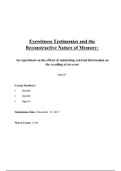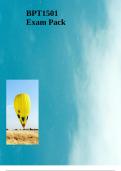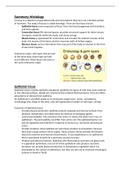Essay
HL Psychology IA (7)
- Kurs
- Hochschule
This is my HL Psychology IA submitted to the IBO for the May 2019 session. I was awarded a 7 for the subject and 44 points in total for the diploma. This IA's topic was Loftus and Palmer (1974)'s car-crash experiment.
[ Mehr anzeigen ]






